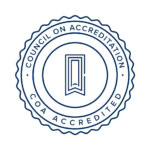How a White CEO Can Support Anti-Racist Work

This column was originally published in November issue of The Provider, the newspaper of the Providers’ Council.
By Eric L. Masi
President/CEO of Wayside Youth & Family Support Network
In too many organizations, issues of race and gender have historically been delegated to human resources. Today, this should no longer be the case, nor can it be the way white nonprofit leaders operate.
Our agency, Wayside Youth & Family Support Network, has taken steps to ingrain Diversity, Equity and Inclusion in our culture: promoting staff of color; training staff to have planned regular “courageous conversations” about race and diversity in each of our programs; engaging in dialogues with local police departments; and measuring the success rates that children and families of color achieve in our programs, as compared with white children and families.
Since George Floyd was murdered, we have posted a daily, “One Anti-Racist Action You Can Take Today.” We do an annual diversity survey of our staff and ask our youth and families about their experiences at Wayside regarding race. We also do an annual diversity action plan.
However, striving to be an anti-racist and social justice organization is not achieved by policy, checklists or mandatory HR training. It must be part of an organization’s DNA, connected to its mission, and it must have the active support of the CEO, especially white CEOs.
From my experience, there are five things, at the very least, that a white CEO must do to set the stage for social justice and anti-racist work:
- First, the CEO must connect racial and social justice work to the mission of the organization and make it clear why it is critically important for the organization’s success and for the success of the people it serves. Wayside is a child welfare and behavioral health agency with 500 staff and 20 locations in the Central, Eastern and Northeastern parts of the state. The children and families we serve are more than 40 percent people of color. If we fail to recognize that systemic racism impacts their lives every day, we are failing them.
- CEOs need to communicate a clear and strong message about our values and the values of the organization. Specifically, as a white CEO, I feel I need to communicate with my staff more regularly and consistently to build employee trust and reassure them that Wayside is a safe place for this work. I sent messages to staff after Charlottesville, after the Orlando night club killings, after the 2016 election, and of course, after George Floyd was murdered.
- White CEO’s must put our egos aside. We obviously do not have the personal experience or knowledge to lead this effort. Our role is to listen, learn about our biases and confront our own white fragility. It is not a time for us to talk about our own feelings or emotions. We must support, advocate and create a culture where staff feel safe to have these conversations.
- However, while not in the forefront, the white CEO must show up and be present. We need to be able to manage our feelings and appreciate the challenges, questions and requests, and not shut down because we feel uncomfortable or unfairly criticized. I attend our monthly, staff-led Diversity Committee meetings as often as I can. It is one of the most important parts of my job because it matters to staff to know that I am present, able to take in feedback and accept responsibility for mistakes.
- A white CEO of an organization making a significant commitment to racial and social justice must expect resistance. The typical refrain is, “Not everyone is there yet. We should slow this down.” But the CEO has to be willing to make decisions that aren’t based on waiting for the more hesitant, or convincing the resistant. Organizational change of any kind must be pursued with urgency, or else we inevitably revert back to the status quo.
White CEOs must be comfortable taking on a role where they are in the room to listen and to learn. Leadership on these crucial matters requires we be active, clear and present.

